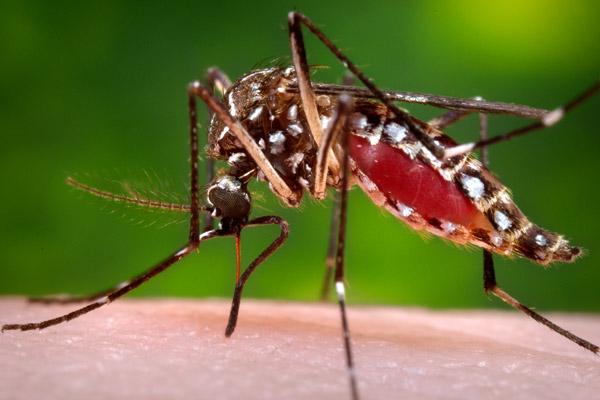
It is reasonable to be concerned about the Zika virus, the director of the Westside Free Medical Clinic in Little Rock said. Karen DiPippa, who operates the Catholic Charities clinic, said the connection between the virus and birth defects in unborn babies is worrisome.
DiPippa said she has received several calls from parishioners seeking answers on the virus.
She said this is what is known at this time:
• Where does it live and how is it transmitted: Zika virus is a tropical virus and is predominately mosquito-borne although it can transmit through sexual contact of an infected person. Mosquitoes capable of carrying the virus are common on the Gulf Coast, Hawaii and Florida and have been found in at least 30 states.
• Dangers: The main concern is the connection between Zika and microcephaly. According to the World Health Organization, there is evidence indicating this virus causes Zika Neurological Syndrome (ZNS). ZNS includes microcephaly, which is the development of unusually small heads and brain damage in newborns if women are infected during their pregnancy.
• Symptoms: Symptoms include significant rash, bloodshot eyes, fever and joint pain. Eighty percent of those infected do not become dangerously ill, and many people do not know they have been exposed. Of the small handful of Arkansans who have contracted the virus, all have been identified as having recently traveled to one of the countries with outbreaks. DiPippa said this suggests Zika is not spreading in the state at this time.
• Prevention: Pregnant women and their male partners should be most vigilant to prevent mosquito bites as best as possible and recognize that sexual contact can transmit the virus.
For those traveling out of the country:
• Check the Center for Disease Control and Prevention Travel Health Notices web page (cdc.gov/travel/notices) for travel warnings.
• Wear long sleeves and pants and/or clothes treated with permethrin (on clothes only, not skin).
• Stay indoors or in a well-screened area. Use insect repellants that are EPA registered because they have been tested for safety for pregnant women.
Please read our Comments Policy before posting.
Article comments powered by Disqus Medical ministry will soon have Little Rock location
Medical ministry will soon have Little Rock location
 Struggling Catholics addiction support in Charleston
Struggling Catholics addiction support in Charleston
 Girl Scout turns tragedy into triumph with project
Girl Scout turns tragedy into triumph with project
 Goal: CPR, first aid training for ushers across diocese
Goal: CPR, first aid training for ushers across diocese
 Catholic Charities is recruiting volunteer medical staff
Catholic Charities is recruiting volunteer medical staff
 New season of ‘The Chosen’ delayed on streaming sites
New season of ‘The Chosen’ delayed on streaming sites
 Father Keller, oldest diocesan priest, a pro-life champion
Father Keller, oldest diocesan priest, a pro-life champion
 Vatican says abortion, surrogacy attack human dignity
Vatican says abortion, surrogacy attack human dignity
 Iowa basketball superstar supported by Catholic faith
Iowa basketball superstar supported by Catholic faith
 A Catholic You Want to Know: Joan Becker
A Catholic You Want to Know: Joan Becker